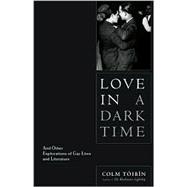Colm Tóibín knows the languages of the outsider, the secret keeper, the gay man or woman. He knows the covert and overt language of homosexuality in literature. In Love in a Dark Time, he also describes the solace of finding like-minde

Colm Tóibín knows the languages of the outsider, the secret keeper, the gay man or woman. He knows the covert and overt language of homosexuality in literature. In Love in a Dark Time, he also describes the solace of finding like-minde
Contents
Introduction
Roaming the Greenwood
Oscar Wilde: Love in a Dark Time
Roger Casement: Sex, Lies and the Black Diaries
Thomas Mann: Exit Pursued by Biographers
Francis Bacon: The Art of Looking
Elizabeth Bishop: Making the Casual Perfect
James Baldwin: The Flesh and the Devil
Thom Gunn: The Energy of the Present
Pedro Almodóvar: The Laws of Desire
Mark Doty: The Search for Redemption
Good-bye to Catholic Ireland
Acknowledgments
The New copy of this book will include any supplemental materials advertised. Please check the title of the book to determine if it should include any access cards, study guides, lab manuals, CDs, etc.
The Used, Rental and eBook copies of this book are not guaranteed to include any supplemental materials. Typically, only the book itself is included. This is true even if the title states it includes any access cards, study guides, lab manuals, CDs, etc.